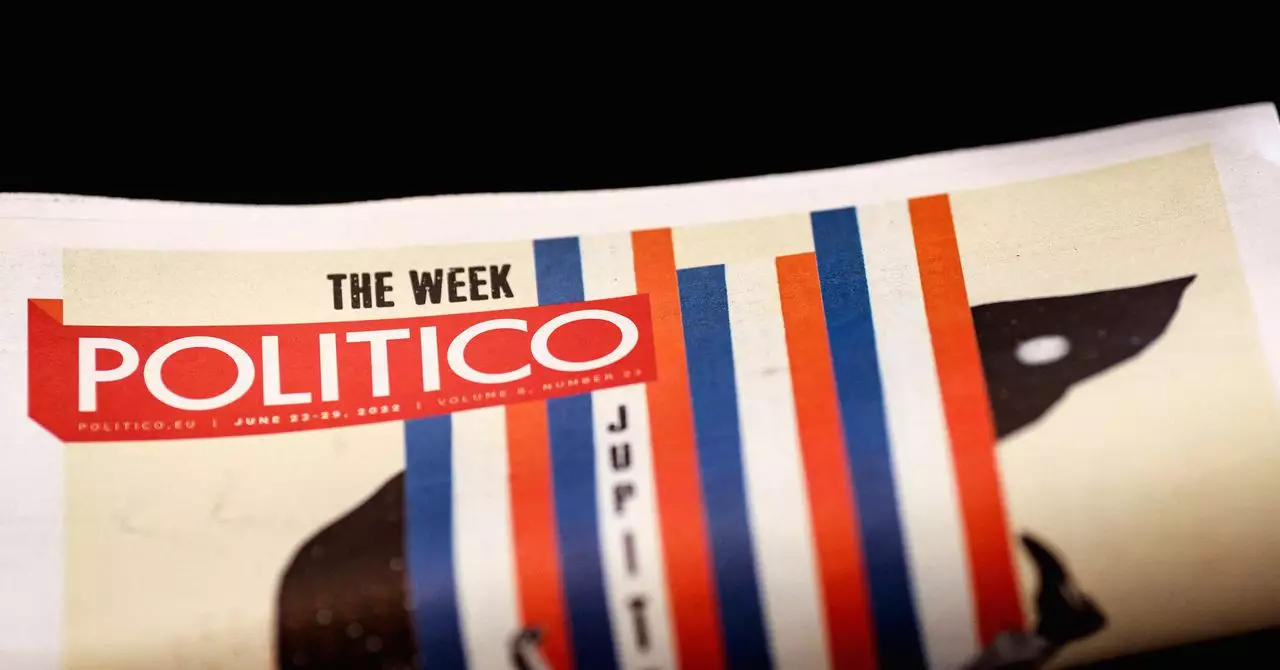Politico’s transformation into a frontrunner by integrating artificial intelligence into its newsroom workflows has sparked a contentious debate about the relationship between technology and traditional journalism ethics. Recently, Politico’s union, represented by the PEN Guild, has raised alarms over potential breaches in their contract regarding AI deployment. This discordance is not merely a contractual spat but signifies a pivotal moment that could shape the future of media, specifically concerning how AI can or should be wielded in the Fourth Estate.
In 2022, when Politico first embraced AI-driven initiatives to produce live news summaries for significant political events, it marked a significant shift in how news could be generated and consumed. However, the enthusiasm for innovation has collided with the principle of journalistic oversight. The union’s assertion that management failed to notify them or engage in good-faith negotiations before launching AI functionalities asks critical questions about the balance of power in a rapidly evolving digital landscape. What happens when the tools intended to expand journalistic reach instead undermine the integrity of the human workforce?
The Implications of AI in Newsrooms
The implications of AI in journalism extend far beyond the immediate contractual disputes. The PEN Guild asserts that AI-generated content is encroaching into realms traditionally reserved for human journalists. This raises profound ethical considerations: Is the application of AI in reporting consistent with journalistic principles, especially in terms of accuracy and language sensitivity? As various reports suggest, AI has not been flawless, delivering erroneous and potentially inflammatory narratives. In one troubling instance, the technology produced a live summary that included derogatory language about migrants that would normally not pass human scrutiny, calling into question the oversight of AI’s outputs.
The introduction of AI in newsrooms has also illuminated a significant gap in regulatory frameworks governing its use. Without enforceable federal standards, the role of unions like the PEN Guild is increasingly critical. Their contract stipulations around technological changes represent one of the few safeguards available to ensure that journalists have a voice in decisions that could ultimately alter the landscape of their work. As stated by Newsguild president Jon Schleuss, this situation emphasizes the need for union contracts to act as a bulwark against the unchecked proliferation of AI without adequate human input and oversight.
The Dilemma of Technological Advancement vs. Ethical Responsibility
While it’s essential for media organizations to embrace transformative technologies to maintain relevance, the ethical responsibilities that accompany these advancements cannot be ignored. Politico, as articulated by its spokesperson, claims to embrace AI while adhering to its standards of journalistic ethics. However, this facade of compliance raises questions: Are the existing standards sufficient in the context of AI, and who sets these ethical benchmarks? Union members are rightfully urging that AI should meet the same rigorous ethical standards that apply to human-led journalism.
With no universal regulations guiding AI applications in media, companies are forced to navigate murky waters fraught with ethical dilemmas—ones that could have lasting ramifications on public trust in journalism. The challenge lies not just in technological adoption but in maintaining a commitment to journalistic integrity amidst rampant innovation. In a fast-paced environment where news cycles evolve at lightning speed, can AI truly uphold the nuanced ethics required for responsible journalism?
A Call for Greater Oversight and Accountability
The current conflict between Politico and the PEN Guild serves as an illuminating case study for the entire industry. As AI tools become increasingly integrated into newsrooms, a more extensive conversation about accountability and oversight must take center stage. The need for human intervention inAI-generated content is underscored by incidents of misinformation that have already occurred.
Ultimately, as Politico prepares for arbitration to resolve this dispute, the outcome could have broader implications for the entire media industry, setting vital precedents for how AI is employed in newsrooms across the nation. As developments unfold, the pressing challenge remains: balancing innovation with responsibility, and ensuring that the voices of journalists are amplified—rather than diminished—by the advancements meant to empower them. The future of journalism hinges not just on the adoption of technology, but on the ethical frameworks that govern its use. The stakes are incredibly high, and the direction taken now will echo through the corridors of media for years to come.

